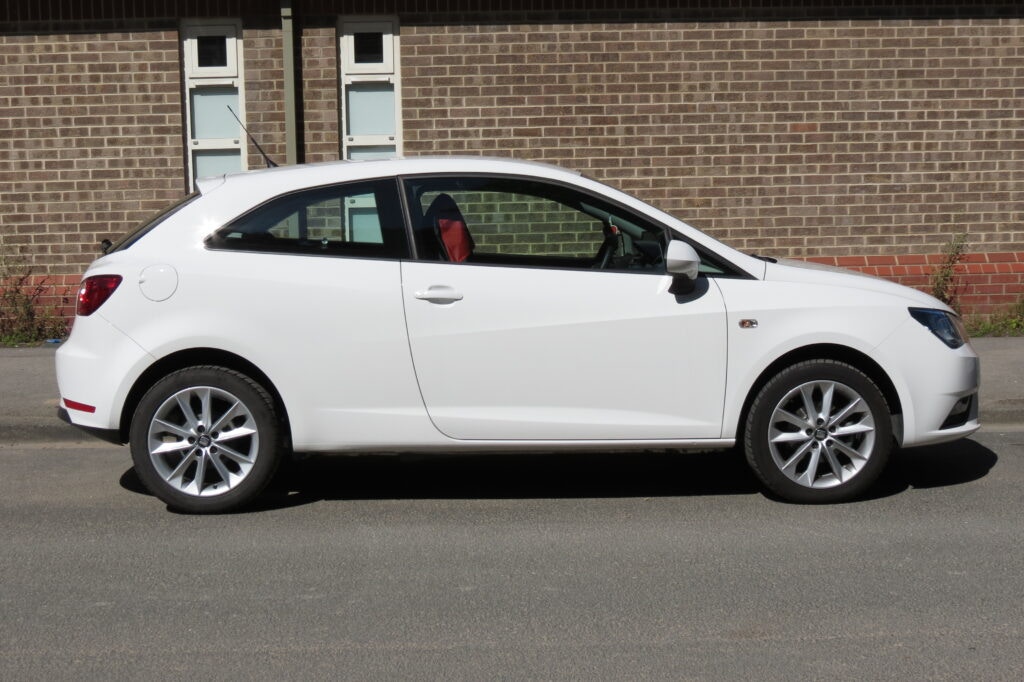Does market demand impact the value of your car?

Anyone looking to buy or sell a vehicle should understand the basics of supply and demand.
Both individual factors such as car condition and mileage, and macro factors, like consumer preferences, governmental regulations, and global economic conditions, play into the overarching market demand for your vehicle. Knowing these factors can help you sell your car or van.
- Market demand’s impact on car value
- Trends impacting resale value
- Trading vs. selling based on market demand
- FAQs

Market demand’s impact on car value
Understanding how market demand trends influence your car’s value is essential for navigating the car sales process.
Shifts in consumer preferences, such as increased demand for fuel-efficient vehicles or electric cars, can elevate the value of certain models while depreciating others. Market demand can vary regionally, with factors like climate, local economies, and cultural preferences influencing demand. For example, compact vehicles, like the Ford Fiesta, are particularly popular in urban areas as they are more efficient and fit in tight parking spaces.
Demand for certain cars or vans can also be influenced on a national and international level. In the UK, Motorway’s data shows an increase in used electric vehicle sales in areas with new or expanding Clean Air Zones. Not sure what policies are in place for your area? Check out our comprehensive emissions, CAZ, and ULEZ guides.
Seasonal trends can also impact cars’ resale values throughout the year. There’s typically increased demand for convertibles in summer or 4-wheel drive vehicles in winter, so selling ahead of these seasons could boost your final sales price.
Understanding these market dynamics allows sellers to strategize sales efforts effectively to maximise the value of their vehicles.
Trends impacting resale value

- Unique specifications and customisations – Changes including engine size, performance enhancements, and paint jobs can significantly impact desirability among buyers. These updates may increase desirability and drive up price among niche markets, but also run the risk of decreasing your overall potential buyer pool.
- Commercial add-ons – Generally popular vehicle updates like upgraded sound systems, navigation systems, and leather interiors often help to increase a car’s resale value.
- Mileage and use – How a vehicle was used also informs pricing and resale demand. Higher mileage typically correlates with greater wear-and-tear, leading to a decrease in value due to perceived mechanical issues and potential future maintenance costs. Records of regular maintenance and service can mitigate the negative impact of mileage, showing proper vehicle care.
- Brand, make, and model – The reputation of a car brand can sway buyer opinion and overarching demand. The same goes for specific vehicle makes and models, with customers often valuing reliability and durability over flashiness.
Trading vs. selling based on market demand
When considering whether to trade or sell your car, market demand plays a crucial role in making the right decision for you.
| Trading your car | Selling your car |
| Convenience – Trading your car at a dealership lets you exchange it for a new vehicle in one transaction Potential trade-in value – Dealerships may offer competitive trade-in values, especially if your car aligns with current consumer demands Need for independent research – Before heading to the dealership, research current used car trends in your area to understand which are in high demand. This can increase your chances of receiving a favorable trade-in offer | Maximise value – Selling your car helps you capitalise on market demand directly and potentially get more money Flexibility – Selling privately grants you more flexibility in setting the price and negotiating offers. However, this requires additional effort than selling via Motorway or a dealership Need for independent research – Before selling, research current used car trends in your area to understand which are in high demand. This can increase your chances of receiving a favorable trade-in offer |
FAQs
How does market demand affect car resale value?
Market demand significantly influences a car’s resale value by dictating its desirability. High demand for specific models or features can drive up resale prices, while low demand can lead to depreciation. Understanding market trends is key to gauging a car’s resale potential accurately.
Is market value different from resale value?
Yes, the market value and resale value of a car can differ. Market value refers to the price a car would sell for in the current market, including both new and used cars. Resale value specifically pertains to the amount a used car can fetch on the secondary market, influenced by factors like depreciation and demand.
How can I track the value of my car?
If you’re not sure what your car’s value is to begin with, it’s hard to know how market demand might impact the price.
All vehicles depreciate at varying rates, with no rule of averages accurately describing any one car’s changing value. Motorway’s Car Value Tracker provides a free, reliable monthly price alert for up to six vehicles at once.
Follow changes to your car’s value to choose the best time to sell, and make informed choices about investments in your car’s maintenance.

Ready to sell your car?
Want to read more about owning, valuing, and selling your car? Check out more of our guides here, covering everything from depreciation to maintaining your car’s value. Understand your car’s worth in the wider market.
- Sell my car
- Track your car value
- Can you sell a car without an MOT?
- The ultimate MOT guide
- How to check if your car or van’s MOT is up to date
- How much does it cost to get an MOT?
- How long does an MOT take?
- What does an MOT check?
- If my car fails its MOT, how long do I have to fix it?
- When will a new car need its first MOT?
- How old does a car have to be to be MOT exempt?
The information provided on this page is for general informational purposes only and should not be considered as professional advice.